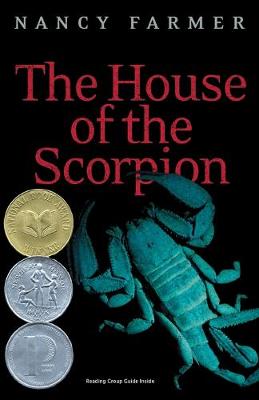
Amber (The Literary Phoenix)
Written on Nov 19, 2019
While the pacing in this book was a bit slow and meandering, I quickly became interested in what happened to the various characters. I immediately loved Maria for all her spirit and care and her character arc made so much sense to me - I felt like it moved flawlessly. But it wasn't just Maria. Matt, the main character, was interesting enough within the confines of his existential crisis. The side characters were all interesting in one way or another and I really appreciated the way that Nancy Farmer always came back with surprises and developments about her characters. Nobody was forgotten.
My personal favorites? Maria, who grew up alongside our protagonist, and Tam Lin. Generally I love a good "found family" story, but I particularly liked Tam Lin as that stand-in father figure. There were twists and nuances to his character that made the ending particularly heart-wrenching for me, as well as a brief twist in the middle.
It's not the characters, though, that make The House of the Scorpion truly interesting. It's the worldbuilding. The worldbuilding is fantastic. And it's all there - blossoming out like a blooming rare flower. We start in a small part of the world with a limited frame of reference in this dystopian landscape... then as Matt grows, so does the world around him. The world in The House of the Scorpion is familiar enough to feel possible while being deplorable enough to warrant caution to its readers. That is a solid dystopia, and much more subtle than many that are written after the YA dystopia boom with The Hunger Games and Divergent.
And, by the way, that is precisely what The House of the Scorpion is: YA. It's a much more mature tone than I'm used to seeing in YA, especially YA dystopia. The voice almost felt like adult dystopia, and the closest thing I can think to compare the writing style to is N. K. Jemisin's The Fifth Season. It's a beautifully written dystopia with a fascinating concept and moral conversation - clones and personhood. I can't emphasize enough how much I appreciated the construction of this dystopian world.
But, alas, The House of the Scorpion isn't perfect. As I mentioned earlier, the pacing is slow and meandering. If it was written to be a slice of life, or a sort of expose about the world, I'd more readily accept the cadence... but it's a duology with the ultimate goal of conquering a drug empire and while I'm curious about where this is headed, the story was so slow for something that seemed like it should have so much excitement.
There were also some early scenes in the novel which, though I found them interesting from a philosophical perspective regarding the status of personhood, did not lend much to the story itself and could have been cut. At the time The House of the Scorpion was written, YA was not a clearly defined genre and I imagine this book would have been more marketed to the science fiction crowd - to me, that explains many of the indulgences. It really doesn't feel like a typical YA novel, and while that doesn't make it any less of an interesting book, it also means it's best to go in with different expectations. Because I have read a variety of adult dystopias (from 1984 to Logan's Run) the style didn't throw me badly and I appreciated the very different setting. This, however, would turn off many other readers.
If you're a fan of a good dystopia with younger characters growing up in a different world, this is probably a good book to pick up. Also, remember that old movie The Island with Ewan McGregor and Scarlet Johansson? Love that movie! Fans of that film and it's dystopian concepts will certainly appreciate aspects of The House of the Scorpion. I was interested enough to listen to this book over the course of two days, and I'm curious to see where the story will take us next.

